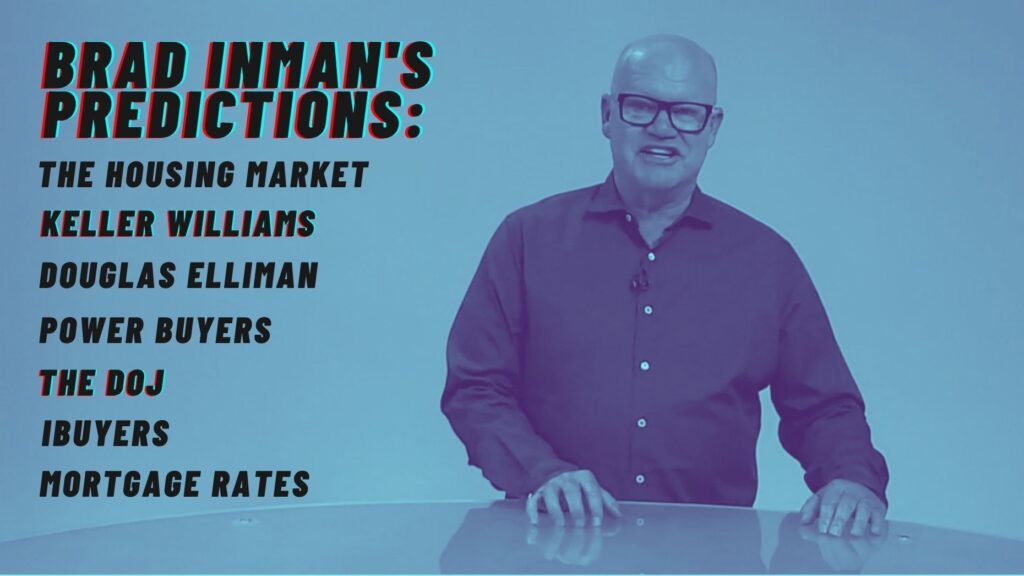Check out all of Inman’s end-of-year coverage here.
With 2021 coming to a close, it’s a time for rest and relaxation with loved ones. As a business operator (as all self-employed individuals should view themselves), it should also be a time for reflection and review.
Here are four tips to guide you through this crucial business review process.
1. Require a 10th man
In October 1973, Israel was invaded by a coalition of neighboring countries. While the Yom Kippur War lasted for less than a month and resulted in an Israeli victory, it had far reaching implications for Israel.
Israel’s lack of preparedness had allowed the invading coalition to proceed virtually unopposed for three days, inflicting casualties, destroying aircraft and eliminating approximately 40 percent of Israeli tanks. Intelligence was ultimately held responsible.
More importantly, Israel, in line with its “never again” mindset, implemented twin policies to prevent similar intelligence failures. The first welcomed analysts and advisers to submit alternate viewpoints to accompany a consensus opinion.
The second — the 10th man rule — required a dissenting opinion to be voiced in any deliberation. If there are 10 in a room with nine concurring opinions, the 10th must disagree, whether out of heartfelt conviction or merely as a “devil’s advocate.”
All to say: Encourage honesty. Seek truth, and empower your leadership team to consider alternate perspectives. Protect your blindside, and embrace calculated innovation. Be sure you have a 10th man in the room whenever making a strategic decision.
2. Remember, you can’t manage what you don’t measure
Before I became involved in real estate, I was blessed with the opportunity to play professional baseball. Before that, I interned with two MLB general managers. These experiences gave me the benefit of seeing how the game is managed both on the field and from the front office.
Over the last 20 years, MLB front offices have come to approach the sport as a science, seeking to discover the perfect method of quantifying the game, removing cognitive bias and uncovering a secret recipe for success in the process.
If a sport as enigmatic as baseball can be rendered decipherable by metrics like WAR and wRC+, you can surely measure the key performance indicators of your business.
In the absence of countervailing data, people naturally tend to perceive what aligns with their underlying presuppositions and ego. This confirmation bias influences the very information we seek and makes us inclined to reject contradictory information without considering the evidence. Thus, we are left making emotionally driven decisions predicated on potentially problematic preconceived notions.
In an industry where revenue typically lags 60 to 90 days, managing your business based solely upon revenue renders you reactive rather than proactive. It impairs your ability to make real-time adjustments and to identify the incremental opportunities to maximize business generation. Without measurement, that secret recipe for success remains clouded in ambiguity.
Properly measuring your business will provide both validation for correct viewpoints and a check on those that miss the mark. As the industry becomes increasingly digitized and therefore less physically comprehensible, you can’t manage what you aren’t measuring.
3. Set a baseline. Then raise it
Progress is relative — relative to where you were yesterday, where you are today and where you want to be tomorrow. You need a baseline to push off and a target to strive for.
Compare your company to where it was last month and last year. In the absence of the necessary longitudinal data, compare your company to industry-wide standards. However, industry average should not be your target, but instead considered a failing mark.
In an industry where the top 20 percent does approximately 80 percent of the production, industry average is a poor barometer and can leave you with a false sense of success.
Instead, with extensive and consistent measurement, you can effectively compare your own performance across time. You can adjust for seasonality and assess the impact of specific changes you implement.
Managed properly, industry average becomes a distant consideration as you are instead assessing your company against its own past performance, which was already above average. So, set your baseline, and then raise it. Repeat.
4. Burn the deadwood
Humans are preconditioned to think that fires are dangerous and destructive. Our egocentricity makes us believe that if something is dangerous to us, it is dangerous to all. That’s one reason why news coverage of a forest fire invokes many to instinctually deem it an avoidable tragedy.
In reality, the ideology undergirding such a judgement — carried to its logical extreme — would doom the very forests it seeks to protect because if enough deadwood accumulates, the next fire will burn so hot that it will instead scorch the top soil leaving behind an environment in which little to nothing can grow.
According to Canada’s official website, “Fire is as crucial to forest renewal as the sun and rain. Forest fires release valuable nutrients stored in the litter on the forest floor. They open the forest canopy to sunlight, which stimulates new growth.” In fact, some trees and plants will not release their seeds until after a fire!
Disturbance is part of the natural life cycle of the forest and of your business. Go through every expense and classify it as either required or optional.
If an expense is required, search for an alternative that is more cost effective while delivering equal or better value. If an expense is optional, you must determine if there was a sufficient return on that investment — that is to say you must look for a definitive reason not to eliminate that expense.
Burn the deadwood before your company is left scorched.
Robert Lucido is the chief strategy officer of Lucido Global. Lucido is responsible for driving corporate strategy and innovation with the aim of creating economic moat, scale and efficiency across the Lucido companies. Before joining Lucido Global in 2018, Robert played professional baseball playing for the Toronto Blue Jays and Texas Rangers. He graduated from Amherst College in 2015 where he was an All-Academic athlete. Connect with him on LinkedIn or Instagram.



 Are You Interested in West Eleventh Residences Miami?
Are You Interested in West Eleventh Residences Miami? Are You Interested in ONE Park Tower by Turnberry?
Are You Interested in ONE Park Tower by Turnberry? Are You Interested in Diesel Wynwood Condominium?
Are You Interested in Diesel Wynwood Condominium? Are You Interested in Five Park Miami Beach?
Are You Interested in Five Park Miami Beach? Are You Interested in Cipriani Residences Miami?
Are You Interested in Cipriani Residences Miami? Are You Interested in Bentley Residences Miami?
Are You Interested in Bentley Residences Miami? Are You Interested in Baccarat Residences Brickell?
Are You Interested in Baccarat Residences Brickell? Are You Interested in Aria Reserve Miami?
Are You Interested in Aria Reserve Miami? Are You Interested in 888 Brickell Dolce & Gabbana | Miami?
Are You Interested in 888 Brickell Dolce & Gabbana | Miami? Are You Interested in 600 Miami WorldCenter?
Are You Interested in 600 Miami WorldCenter? Are You Interested in HUB MIAMI RESIDENCES?
Are You Interested in HUB MIAMI RESIDENCES? Are You Interested in WALDORF ASTORIA RESIDENCES?
Are You Interested in WALDORF ASTORIA RESIDENCES?